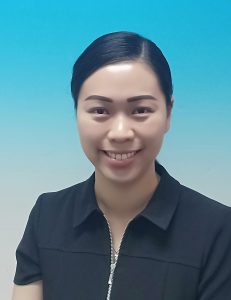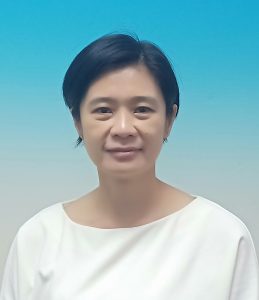[fusion_builder_container hundred_percent=”no” equal_height_columns=”no” menu_anchor=”” hide_on_mobile=”small-visibility,medium-visibility,large-visibility” class=”” id=”” background_color=”” background_image=”” background_position=”center center” background_repeat=”no-repeat” fade=”no” background_parallax=”none” parallax_speed=”0.3″ video_mp4=”” video_webm=”” video_ogv=”” video_url=”” video_aspect_ratio=”16:9″ video_loop=”yes” video_mute=”yes” overlay_color=”” overlay_opacity=”0.5″ video_preview_image=”” border_size=”” border_color=”” border_style=”solid” padding_top=”” padding_bottom=”” padding_left=”” padding_right=””][fusion_builder_row][fusion_builder_column type=”1_1″ layout=”1_1″ background_position=”left top” background_color=”” border_size=”” border_color=”” border_style=”solid” border_position=”all” spacing=”yes” background_image=”” background_repeat=”no-repeat” padding=”” margin_top=”0px” margin_bottom=”0px” class=”” id=”” animation_type=”” animation_speed=”0.3″ animation_direction=”left” hide_on_mobile=”small-visibility,medium-visibility,large-visibility” center_content=”no” last=”no” min_height=”” hover_type=”none” link=””][fusion_text] With an estimated 3.6 million Malaysians living with diabetes, there is a growing number of healthcare providers building an exciting career path in Diabetes Education. Grace Cheah a pharmacist said “I see that there are more people, now than ever, who have diabetes. I then decided to further my education in this area to improve my knowledge of diabetes management. I am especially keen to find better ways to manage diabetes-related complications.” Grace is currently juggling between her job at a retail pharmacist and that of a postgraduate student of the Postgraduate Diploma in Diabetes Management and Education programme at the International Medical University. [/fusion_text][fusion_table]
| Growing a Career in Diabetes Management and Education |
|---|
| Commenting on the usefulness of having a diabetes educator qualification, Dr Tan Ming Yeong who is a Credentialed Diabetes Educator said, “Diabetes affects every aspect of a person’s life. Managing diabetes requires a multi-disciplinary approach that includes physicians, nurses, pharmacists, dietitians, clinical psychologists, and physiotherapist/exercise physiologists. When these healthcare providers upskill with a diabetes educator qualification, they would possess comprehensive knowledge and experience in diabetes care to promote self-management among people with diabetes for better health outcomes and quality of life.” Dr Tan is also the Vice President of the Malaysian Diabetes Educators Society and a Senior Lecturer for the Postgraduate Diploma in Diabetes Management and Education programme. After working as a hospital nurse for 14 years, Vickneswary Valayuthan decided to expand her nursing role in providing diabetes education. “I registered as a part-time student with the Postgraduate Diploma in Diabetes Management and Education programme because having this qualification is advantageous for my career development in becoming a qualified diabetes educator” said Vickneswary. |
[/fusion_table][fusion_imageframe image_id=”33958″ style_type=”none” stylecolor=”” hover_type=”none” bordersize=”15″ bordercolor=”#ffffff” borderradius=”” align=”none” lightbox=”no” gallery_id=”” lightbox_image=”” alt=”” link=”” linktarget=”_self” hide_on_mobile=”small-visibility,medium-visibility,large-visibility” class=”” id=”” animation_type=”” animation_direction=”left” animation_speed=”0.3″ animation_offset=””]https://www.imu.edu.my/media/2019/03/5D3_8751.jpg[/fusion_imageframe][fusion_text] Improving Diabetes Care in a Way That Matters Dr Lee Ching Li who is a dietitian and the Programme Director of the Postgraduate Diploma in Diabetes Management and Education programme happily reported that students of this course are reaping the benefits of their postgraduate learning, even before completing their studies. “The majority of students in this programme are working adult learners. This allows them to immediately transfer their new learning to benefit the patients they see at their workplace” said Dr Lee. 
 Nah Ying Wa who is currently in Semester 2 of the programme and also a practicing pharmacist remarked “I noticed that the quality of care that I provide to my patients with diabetes has improved tremendously. Before taking this programme, I would mainly provide care concerning medication issues when patients come to me. Now, I can provide a more comprehensive care plan that addresses the patient’s individual needs and empowers the patient to better self-manage diabetes in their day to day life.” Another student, who is currently working as a nurse, Wong Soh San adds, “I have started applying what I have learned to become a reflective practitioner. I can recognise my gaps and strengths as a practitioner and engage in a process of continuous learning to improve my clinical skills. I have gotten good feedback from my patients. My referrals from doctors have increased. Recently, I received an invitation to speak at a nursing school to nursing students at a workshop.” [/fusion_text][fusion_table]
Nah Ying Wa who is currently in Semester 2 of the programme and also a practicing pharmacist remarked “I noticed that the quality of care that I provide to my patients with diabetes has improved tremendously. Before taking this programme, I would mainly provide care concerning medication issues when patients come to me. Now, I can provide a more comprehensive care plan that addresses the patient’s individual needs and empowers the patient to better self-manage diabetes in their day to day life.” Another student, who is currently working as a nurse, Wong Soh San adds, “I have started applying what I have learned to become a reflective practitioner. I can recognise my gaps and strengths as a practitioner and engage in a process of continuous learning to improve my clinical skills. I have gotten good feedback from my patients. My referrals from doctors have increased. Recently, I received an invitation to speak at a nursing school to nursing students at a workshop.” [/fusion_text][fusion_table]
| Path to Getting a Diabetes Educator Qualification |
|---|
| Students have the opportunity to earn their Postgraduate Diploma in Diabetes Management and Education in just 1 year! If this is too demanding, students also have the option to stretch it to 3 years. Designed to suit working adults, this programme uses a blended learning model that incorporates online learning, clinical practicum at the student’s place of work, and a maximum of one week spent per semester learning at the university campus. This delivery allows the student to maximise learning anywhere and anytime. There is no end-of-semester examination and students will be assessed via 100% in-course activities that include individual assignments, group activities and face-to-face assessments. |
[/fusion_table][/fusion_builder_column][/fusion_builder_row][/fusion_builder_container]


No approved comments.